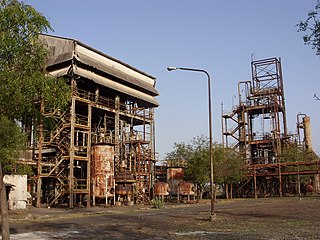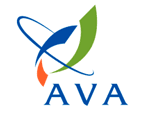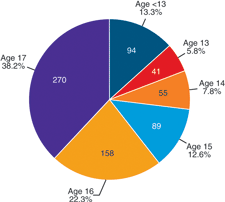
The World Food Programme (WFP) is the food-assistance branch of the United Nations. It is the world's largest humanitarian organization focused on hunger and food security, and the largest provider of school meals. Founded in 1961, it is headquartered in Rome and has offices in 80 countries. As of 2020, it served 115.5 million people in 80-plus countries, the largest since 2012.

Foodborne illness is any illness resulting from the spoilage of contaminated food by pathogenic bacteria, viruses, or parasites that contaminate food, as well as prions, and toxins such as aflatoxins in peanuts, poisonous mushrooms, and various species of beans that have not been boiled for at least 10 minutes.

Commercial fishing is the activity of catching fish and other seafood for commercial profit, mostly from wild fisheries. It provides a large quantity of food to many countries around the earth, but those who practice it as an industry must often pursue fish far into the ocean under adverse conditions. Large-scale commercial fishing is also known as industrial fishing.

A chemical accident is the unintentional release of one or more chemical hazard substances which could harm human health and the environment. Such events include fires, explosions, leakages or release of toxic or hazardous materials that can cause people illness, injury, or disability.
The Deutsche Gesellschaft für Internationale Zusammenarbeit (GIZ) GmbH, often shortened to simply GIZ, is a German development agency headquartered in Bonn and Eschborn that provides services in the field of international development cooperation and international education work. GIZ's main commissioning party is Germany's Federal Ministry for Economic Cooperation and Development (BMZ). Other commissioners include European Union institutions, the United Nations, the private sector, and governments of other countries. In its projects GIZ works with partners in national governments, actors from the private sector, civil society and research institutions. It is the organization's self-declared goal to deliver effective solutions that offer people better prospects and sustainably improve their living conditions.

Signed into effect on 12 June 2002, the Public Health Security and Bioterrorism Preparedness and Response Act, (PHSBPRA) was signed by the President, the Department of Health and Human Services (DHHS) and the U.S. Department of Agriculture (USDA).

Food safety is used as a scientific method/discipline describing handling, preparation, and storage of food in ways that prevent food-borne illness. The occurrence of two or more cases of a similar illness resulting from the ingestion of a common food is known as a food-borne disease outbreak. This includes a number of routines that should be followed to avoid potential health hazards. In this way, food safety often overlaps with food defense to prevent harm to consumers. The tracks within this line of thought are safety between industry and the market and then between the market and the consumer. In considering industry to market practices, food safety considerations include the origins of food including the practices relating to food labeling, food hygiene, food additives and pesticide residues, as well as policies on biotechnology and food and guidelines for the management of governmental import and export inspection and certification systems for foods. In considering market to consumer practices, the usual thought is that food ought to be safe in the market and the concern is safe delivery and preparation of the food for the consumer.
Environmental Health Officers are responsible for carrying out measures for protecting public health, including administering and enforcing legislation related to environmental health and providing support to minimize health and safety hazards. Environmental Health Officers keep our water, food, air, land, facilities and other environmental factors safe of health hazards, whether biological, chemical or physical. They also address the related factors that impact behaviours. Environmental Health Officers assess and control environmental factors that can potentially affect health, to prevent disease and create health-supportive environments. Environmental determinants of health play a major role in a community’s overall health and well-being, and thus Environmental Health Officers are essential in improving population health outcomes and reducing the burden of disease.

Food safety in China is a concern relating to agriculture in the world's most populated country. China's principal crops are rice, corn, wheat, soybeans, and cotton in addition to apples and other fruits and vegetables. China's principal livestock products include pork, beef, dairy, and eggs. The Chinese government oversees agricultural production as well as the manufacture of food packaging, containers, chemical additives, drug production, and business regulation. In recent years, the Chinese government attempted to consolidate food safety regulation with the creation of the State Food and Drug Administration of China in 2003; officials have also been under increasing public and international pressure to solve food safety problems. Chinese Vice Premier Li Keqiang said, "Food is essential, and safety should be a top priority. Food safety is closely related to people's lives and health and economic development and social harmony," at a State Council meeting in Beijing.

The Agri-Food and Veterinary Authority of Singapore (AVA) was a statutory board under the Ministry of National Development that regulated food safety, safeguarded animal and plant health, and facilitated the agri-food and fisheries trade sectors. AVA was disbanded on 1 April 2019, with duties being transferred to other statutory boards, Singapore Food Agency, National Environment Agency, Health Sciences Authority, and National Parks Board.

Around the world, nearly 250 million children, about one in every six children, ages 5 through 17, are involved in child labor. Children can be found in almost any economic sector. However, at a global level, most of them work in agriculture (70%). Approximately 2.4 million adolescents aged 16 to 17 years worked in the U.S. in 2006. Official employment statistics are not available for younger adolescents who are also known to work, especially in agricultural settings.
HIV/AIDS in Eswatini was first reported in 1986 but has since reached epidemic proportions. As of 2016, Eswatini had the highest prevalence of HIV among adults aged 15 to 49 in the world (27.2%).

A physical hazard is an agent, factor or circumstance that can cause harm with contact. They can be classified as type of occupational hazard or environmental hazard. Physical hazards include ergonomic hazards, radiation, heat and cold stress, vibration hazards, and noise hazards. Engineering controls are often used to mitigate physical hazards.
A food safety-risk analysis is essential not only to produce or manufacture high quality goods and products to ensure safety and protect public health, but also to comply with international and national standards and market regulations. With risk analyses food safety systems can be strengthened and food-borne illnesses can be reduced. Food safety risk analyses focus on major safety concerns in manufacturing premises—not every safety issue requires a formal risk analysis. Sometimes, especially for complex or controversial analyses, regular staff is supported by independent consultants.

Food security is defined, according to the World Food Summit of 1996, as existing "when all people at all times have access to sufficient, safe, nutritious food to maintain a healthy and active life". This commonly refers to people having "physical and economic access" to food that meets both their nutritional needs and food preferences. Today, Ethiopia faces high levels of food insecurity, ranking as one of the hungriest countries in the world, with an estimated 5.2 million people needing food assistance in 2010. Ethiopia was ranked 92 in the world in Global Hunger Index 2020.

The Food Safety and Inspection Service (FSIS), an agency of the United States Department of Agriculture (USDA), is the public health regulatory agency responsible for ensuring that United States' commercial supply of meat, poultry, and egg products is safe, wholesome, and correctly labeled and packaged. The FSIS draws its authority from the Federal Meat Inspection Act of 1906, the Poultry Products Inspection Act of 1957 and the Egg Products Inspection Act of 1970. The FSIS also acts as a national health department and is responsible for the safety of public food-related establishments as well as business investigation.

This is a list of government and municipal institutions of Latvia and their subordinated institutions with executive powers:
National Food Chain Safety Office (Nébih/NFCSO) is the integrated food safety authority of Hungary, established on 15 March 2012.

Casirivimab/imdevimab, sold under the brand name REGEN-COV among others, is a combination medicine used for the treatment and prevention of COVID-19. It consists of two human monoclonal antibodies, casirivimab and imdevimab that must be mixed together and administered as an infusion or subcutaneous injection. The combination of two antibodies is intended to prevent mutational escape. It is also available as a co-formulated product. It was developed by the American biotechnology company Regeneron Pharmaceuticals.













